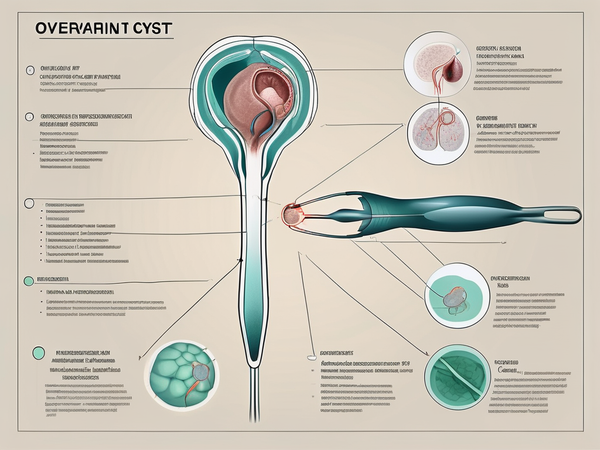PCOS, or Polycystic Ovary Syndrome, is a common hormonal disorder affecting many women. It is characterized by the presence of cysts on the ovaries, irregular menstrual cycles, and hormonal imbalances. While the exact cause of PCOS is unknown, genetics and environmental factors are believed to play a role in its development. But how to manage PCOS?
Understanding PCOS: An Introduction
Before wondering about how to manage PCOS, it is important to understand what exactly is PCOS. PCOS is a complex condition that affects women of reproductive age. It is estimated that around 5-10% of women worldwide have PCOS. While the symptoms and severity of PCOS can vary from person to person, certain common characteristics are often present.
One of the key features of PCOS is an excess production of androgens, or male hormones, in the body. This can lead to a variety of symptoms, including acne, excessive hair growth, and weight gain.
Moreover, PCOS is not just limited to its physical manifestations, it can also have significant effects on a woman's reproductive health. Women with PCOS often experience irregular ovulation or anovulation, which can lead to infertility or difficulty conceiving. This aspect of PCOS can have profound emotional and psychological effects on those affected, adding another layer of complexity to the condition.
The Medical Definition of PCOS
According to medical professionals, PCOS is diagnosed when a woman meets at least two of the following criteria:
- Irregular menstrual cycles
- Elevated levels of androgens
- Presence of cysts on the ovaries
Furthermore, the diagnosis of PCOS is not always straightforward and may require a comprehensive evaluation by healthcare providers. In some cases, additional tests such as pelvic ultrasounds or blood work may be necessary to confirm the presence of PCOS and rule out other potential causes of similar symptoms.
Common Causes and Risk Factors of PCOS
The exact cause of PCOS is not fully understood, but both genetic and environmental factors are believed to contribute to its development. Some common risk factors for PCOS include:
- Family history of PCOS
- Insulin resistance
- Obesity
- Sedentary lifestyle
It is important to note that while these risk factors can increase the likelihood of developing PCOS, the condition can still occur in the absence of any known risk factors. This complexity underscores the need for ongoing research and awareness to better understand and manage PCOS effectively.
There are many lifestyle changes to manage PCOS. From diet to medication that treats PCOS, along with the best type of exercise for PCOS, there are ways of managing the symptoms of PCOS.
The Role of Diet in Managing PCOS
Adopting a healthy diet is an essential aspect of managing PCOS. Making certain dietary changes can help regulate hormone levels, improve insulin sensitivity, and promote weight loss.
The Impact of Sugars and Carbs on PCOS
The diet for PCOS involves including some foods as well as cutting out some. Consuming excessive amounts of sugars and refined carbohydrates can worsen the symptoms of PCOS. These foods can cause rapid spikes in blood sugar levels and increase insulin production, which can disrupt hormonal balance and lead to weight gain. Hence, it is important to limit the intake of sugary foods and choose complex carbohydrates instead, such as whole grains, fruits, and vegetables.
Furthermore, it's crucial to understand the concept of glycemic index (GI) when managing PCOS. Foods with a high GI can cause a rapid increase in blood sugar levels, leading to insulin spikes and potential weight gain. Opting for low-GI foods like legumes, non-starchy vegetables, and whole grains like brown rice, barley, multigrain bread, pasta, and cereals can help stabilize blood sugar levels and improve insulin sensitivity in individuals with PCOS.
The Importance of a Well-Balanced Diet
A well-balanced diet for PCOS includes a variety of nutrient-dense foods. Including adequate amounts of lean proteins, healthy fats, and high-fiber foods can help regulate blood sugar levels, support hormone production, and promote overall health. Additionally, consuming foods rich in antioxidants, such as berries and leafy greens, can help reduce inflammation and improve PCOS symptoms.
In addition to nutrient-dense foods, PCOS diet patterns are in sync with regular physical activity to further enhance the management of PCOS. Exercise not only helps with weight management but also improves insulin sensitivity and promotes overall well-being. Engaging in a combination of cardiovascular exercise, strength training, and flexibility exercises can have a positive impact on PCOS symptoms and overall health.
The Significance of Regular Exercise
Engaging in regular physical activity is another important habit for managing PCOS. Exercise helps improve insulin sensitivity, promote weight loss, and regulate hormone levels. Various types of exercises can be beneficial for women with PCOS:
Adding to the benefits mentioned above, regular exercise also plays a crucial role in improving cardiovascular health in women with PCOS. By engaging in activities that elevate the heart rate, such as running, aerobics, or dancing, individuals can strengthen their heart muscles, improve circulation, and reduce the risk of heart disease.
Types of Exercises Beneficial for PCOS
The best type of exercise for PCOS is a combination of cardiovascular exercises, such as brisk walking, cycling, or swimming, and strength training exercises like lunges, bicep curls, and jumping jacks can help improve PCOS symptoms. Cardiovascular exercises help burn calories and promote weight loss, while strength training exercises help build lean muscle mass and increase overall metabolism.
Furthermore, incorporating flexibility exercises like yoga or Pilates into a workout routine can help women with PCOS enhance their range of motion, reduce muscle tension, and improve posture. These exercises also promote relaxation and stress reduction, which are essential for overall well-being.
The Connection Between Exercise and Hormone Regulation
Regular exercise has been shown to have a positive impact on hormone regulation in women with PCOS. It can help reduce insulin resistance, lower androgen levels, and improve menstrual regularity. Additionally, exercise can elevate mood, reduce stress levels, and improve overall well-being.
In addition to the physical benefits, exercise can also serve as a form of empowerment for women with PCOS. By taking control of their health through regular physical activity, individuals can boost their self-esteem, increase their confidence, and feel more in tune with their bodies. This sense of empowerment can have a profound impact on mental health and quality of life.
The Power of Adequate Sleep and PCOS Management
Getting enough sleep is essential for overall health and well-being, and it plays a crucial role in managing PCOS.
Polycystic Ovary Syndrome (PCOS) is a common hormonal disorder that affects people with ovaries of reproductive age. Irregular periods, excess androgen levels, and polycystic ovaries characterize it. One of the key factors in managing PCOS is maintaining a healthy lifestyle, which includes getting adequate quality sleep each night. Sleep plays a vital role in regulating hormones, including insulin, cortisol, and reproductive hormones, which can impact PCOS symptoms. For people facing sleep problems such as anxiety or mild insomnia, oral sleep supplements are an ideal way of having a good night’s rest.
Herbal Remedies for PCOS
Apart from lifestyle changes that manage PCOS, there are various medicinal plants and herbs for PCOS symptom management, such as aloe vera, chamomile, chaste berry, ginseng, and naturally extracted inositols. Apart from these, berberine, licorice, and cinnamon also help soothe PCOS symptoms.
Supplements for Managing the Symptoms of PCOS
Nutraceutical supplements are available to manage PCOS symptoms and regain hormonal balance. Ideal supplements for PCOS have a combination of essential herbs like Chasteberry, Licorice, and Shatavari, along with clinically proven inositols to effectively manage PCOS symptoms.
Conclusion
Prioritizing sleep hygiene practices can significantly benefit individuals with PCOS by improving their overall health and quality of life, as disrupted sleep patterns in PCOS patients can exacerbate symptoms like insulin resistance, weight gain, and hormonal imbalances. By maintaining a consistent sleep schedule, adopting a relaxing bedtime routine, and optimizing the sleep environment, individuals with PCOS can regulate appetite, reduce stress levels, and support hormone balance, ultimately managing their symptoms more effectively.



























 DOWNLOAD NOW
DOWNLOAD NOW
